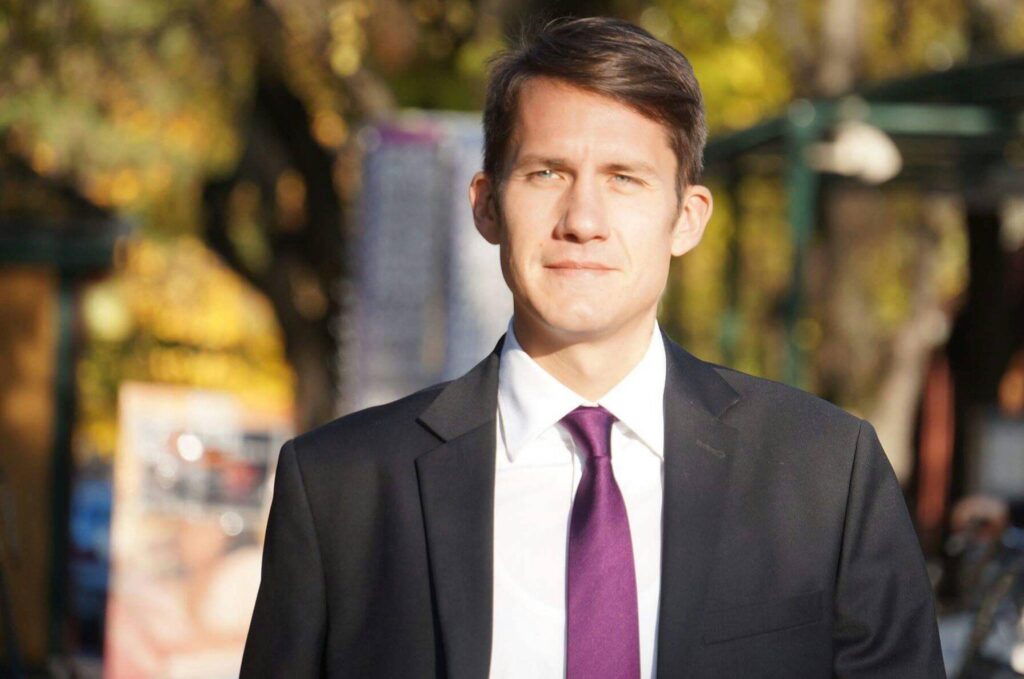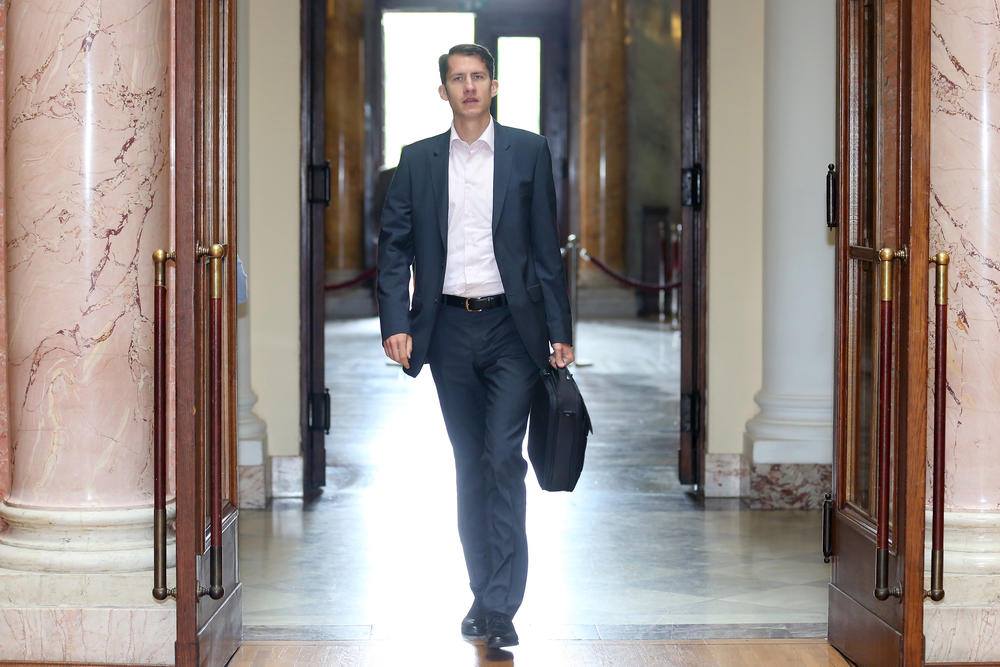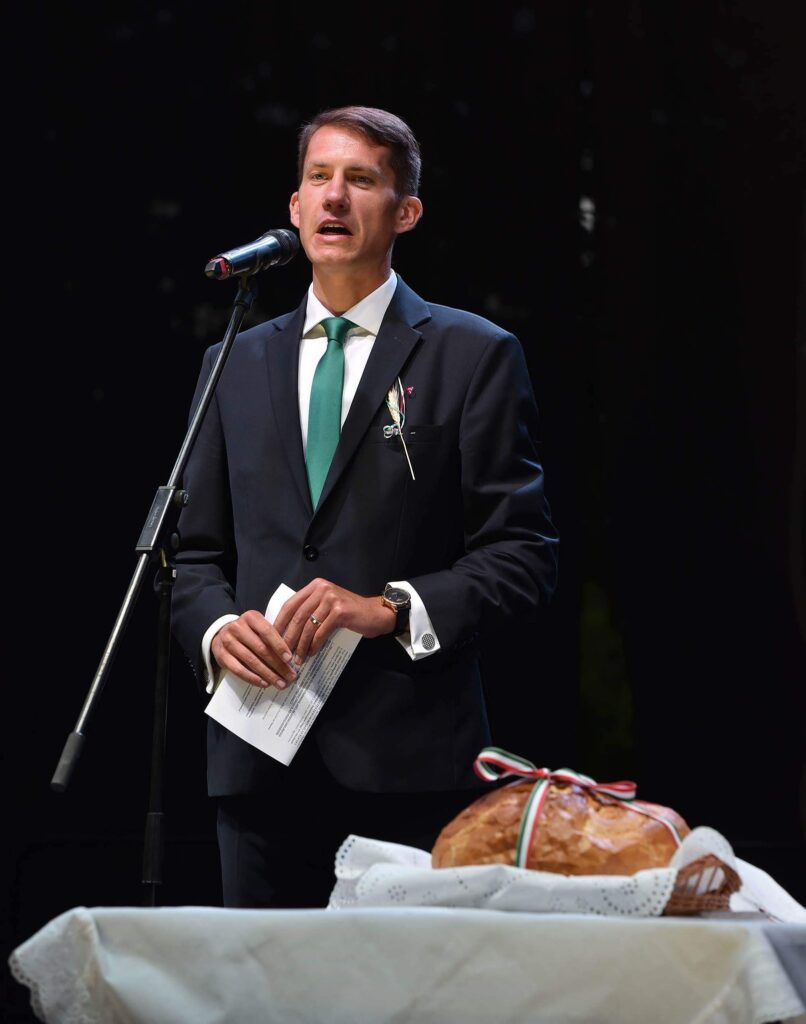Bálint Pásztor Reflects on Serbian-Hungarian Reconciliation and Growth

In this exclusive interview, Bálint Pásztor, Member of Parliament in the National Assembly of the Republic of Serbia, illuminates the remarkable progress in Serbian-Hungarian relations, the role of national minorities as bridges between nations, and the unparalleled support offered by the Hungarian state to its citizens in Vojvodina. From historic reconciliation to groundbreaking infrastructure projects, Pásztor highlights the transformative partnership that sets an example for the region and beyond.
During the official visit of the President of Hungary, Tamás Sulyok, it was stated that cooperation with Hungary is at “the highest historical level,” as noted by the President of the Republic of Serbia, Aleksandar Vučić. In your opinion, what is the critical factor behind this successful bilateral cooperation between the two countries?
We achieved historical reconciliation 11 years ago and jointly closed the most painful chapters of Serbian-Hungarian history and mutual relations. I am referring to the horrors of the 1940s during World War II—first, against the innocent Serbian population in 1941-42, and later, in 1944-45 against the innocent Hungarian civilian population. Eleven years ago, we achieved historical reconciliation when the then-president of the two republics, Tomislav Nikolić and János Áder, jointly paid respects at memorials honouring the innocent Serbian and Hungarian victims. János Áder also issued an apology in the National Assembly of Serbia for the atrocities committed in 1941 and 1942, while our National Assembly adopted a declaration condemning acts against the Hungarian civilian population in 1944 and 1945. Furthermore, Aleksandar Vučić’s government, precisely 10 years ago, on October 30, 2014, annulled two decisions from 1945 that had stigmatised the entire Hungarian community based on the principle of collective guilt or collective responsibility.
By doing so, we succeeded in closing that chapter of our shared past. Since then, we have been able to focus on planning and implementing joint infrastructure and economic projects. I believe that Serbia currently has no better neighbours than Hungary, just as Hungary has no better neighbours than Serbia.

How would you assess the position of the Hungarian national minority in Serbia today?
As part of the ruling majority, through the Alliance of Vojvodina Hungarians (VMSZ), we have been building a strategic partnership with the Serbian Progressive Party for 10 years. Within the institutions of the National Assembly and the government, we address issues related to the position of national minorities. The legislative framework is entirely satisfactory. While there is work to be done regarding implementation, there are no significant issues. Should any arise, we resolve them in collaboration with our partners.
We have reached the highest level of cooperation; there are no open issues or neglected areas in our relations
To what extent do the national minorities in both countries contribute to strengthening ties between the Hungarian and Serbian peoples?
They have undoubtedly contributed. It is often said that national minorities act as bridges between countries. I wouldn’t say I like to use that phrase because everyone else does. Still, the most significant benefit of such good relations is for Serbs in Hungary and Hungarians in Serbia, particularly in Vojvodina.
Collaboration exists at all levels, for example, between representatives of Hungarians in Serbia and representatives of Serbs in Hungary. When I was elected President of the Alliance of Vojvodina Hungarians on March 2, my first official guests were representatives and leaders of the Serbs from Hungary. With that, I wanted to communicate clearly that we must prioritise cooperation and support. This ensures the success of all broader collaborations.

Is there any support or assistance from the Hungarian state for citizens living in Vojvodina?
That support has significantly increased since Viktor Orbán became Prime Minister in 2010. Hungary’s national policy, particularly its approach to national minorities and the Hungarian minority living in neighbouring countries, serves as a model for the entire European continent. As an MP, I have spoken in the Serbian parliament to express that we have no objections when the Serbian government assists its compatriots and Serbian institutions in the surrounding region, as our homeland does the same for us as part of the Hungarian nation.
This support benefits Hungarian institutions in Vojvodina and initiatives on preserving identity, education, culture, and information. I particularly want to emphasise the economic support provided through the Prosperitati Foundation, which has been active in Vojvodina for eight years. Dual citizens can apply for projects funded by the Hungarian government. Over these eight years, approximately half a billion euros have been invested, with around 16,000 successful applicants. These funds have been used to purchase family homes in rural areas and agricultural land, start businesses, and support agricultural producers, entrepreneurs, and companies.
While this assistance may not directly fall under the traditional definition of preserving identity, it undoubtedly contributes to ensuring that we can continue to live and thrive in the areas where we have traditionally resided.
Over the past eight years, the Prosperitati Foundation has invested half a billion euros in Vojvodina, benefiting 16,000 applicants
What are your expectations for future cooperation between Serbia and Hungary? Are you satisfied with it, and do you see room for further development?
It is often said that when interstate cooperation includes the national defence issue, it represents the highest level of trust, as there is nothing beyond that. We have reached this highest level. No open issues or areas have been neglected in the past; we have achieved something unprecedented in this part of Europe, and we must preserve it.
More concrete projects focused on infrastructure development and economic cooperation should be implemented to enhance this partnership quantitatively. In terms of quality, I believe it cannot be improved further. One example worth emphasising is Hungary’s position as Serbia’s fourth-largest foreign trade partner. About 15 years ago, Hungary ranked somewhere beyond the 20th place. This demonstrates how much the relations between Serbia and Hungary have improved.